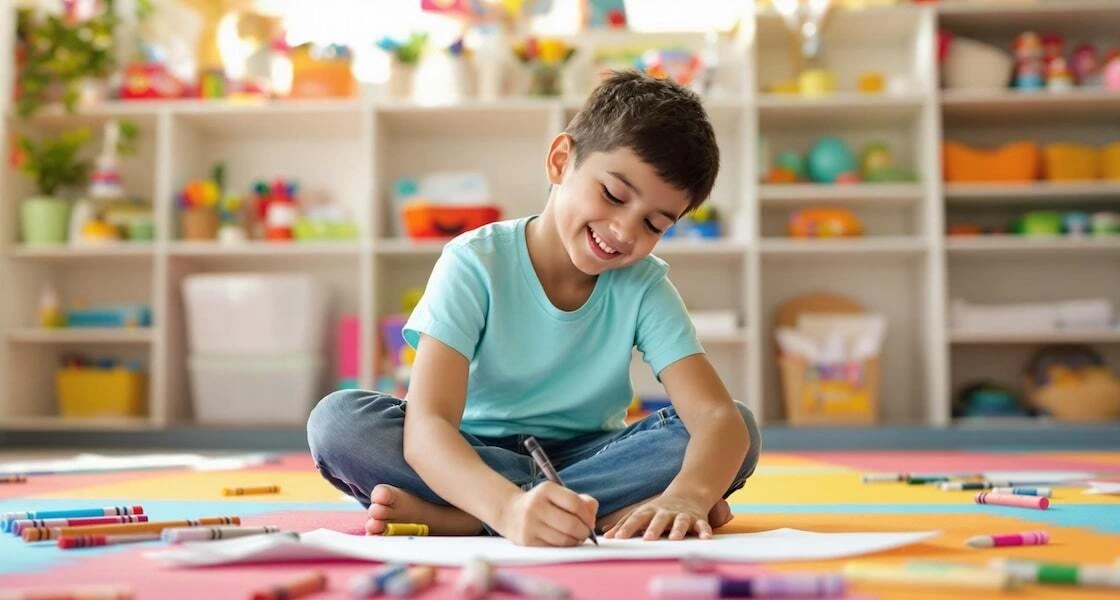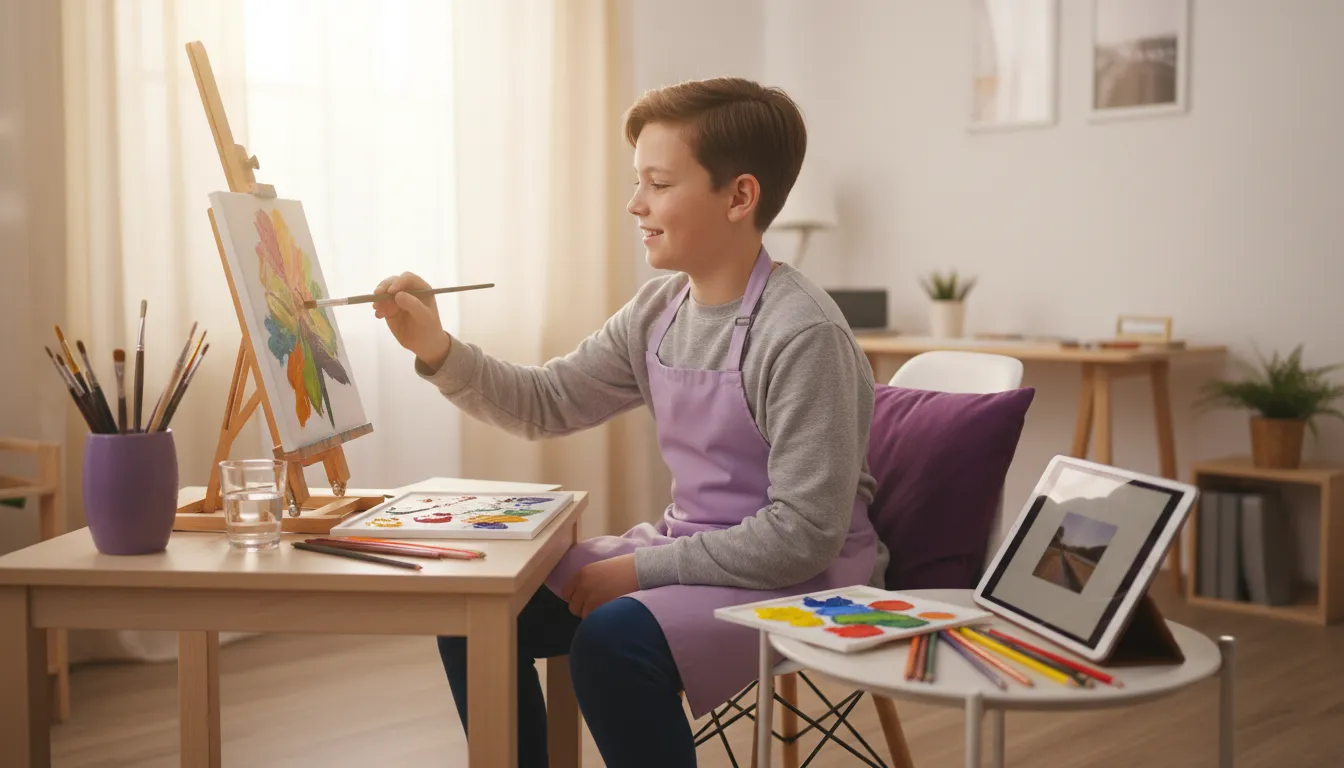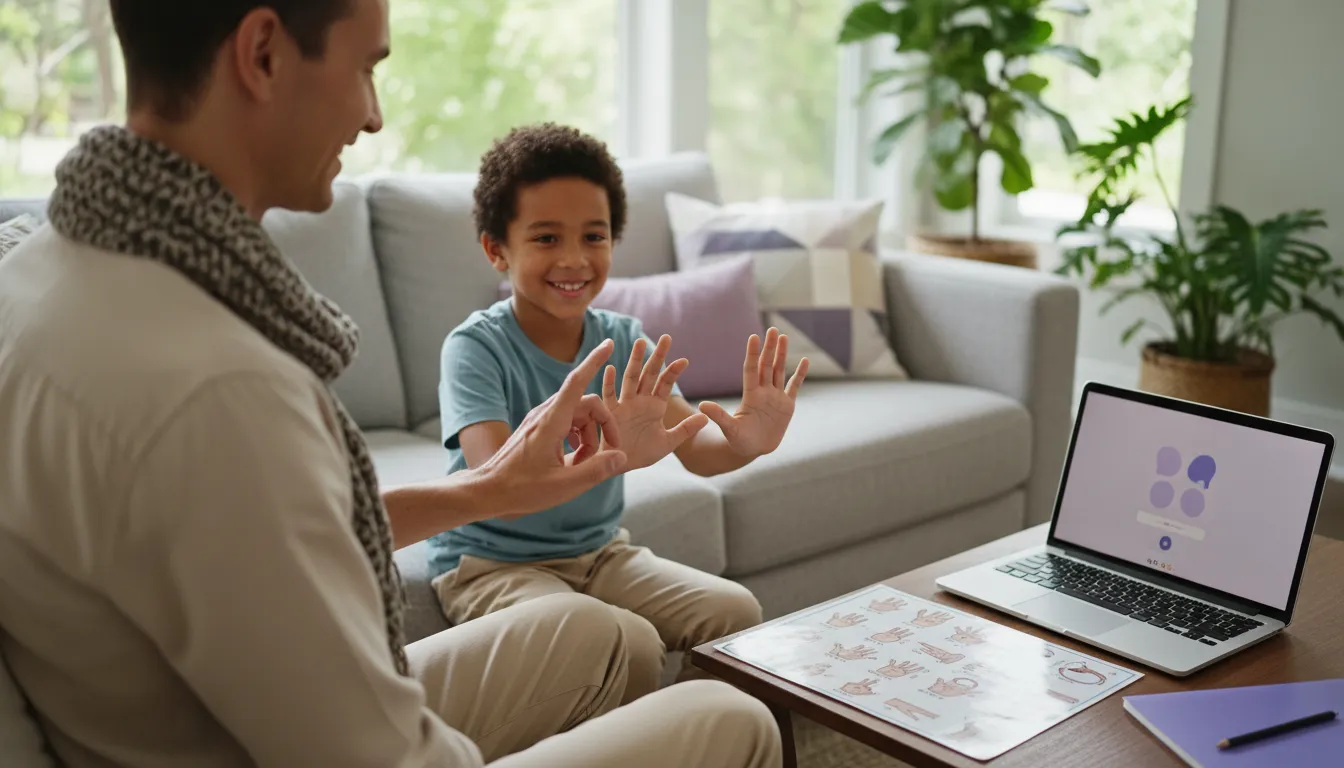When your 8-year-old suddenly describes the sunset as "magnificent" instead of just "pretty," or explains that they feel "frustrated" rather than simply "mad," you're witnessing the magic of vocabulary growth in action. These heartwarming moments show how building a strong vocabulary in 2nd grade unlocks confidence, creativity, and self-expression that stays with children far beyond their school years. Just 15 minutes a day of intentional vocabulary practice can make a big difference, offering busy homeschooling families a manageable way to support their child's love of language.
The joy of teaching vocabulary words for 2nd grade is turning everyday experiences into moments of connection and discovery. If you’re seeking extra support, Outschool offers vocabulary classes designed to match your learner’s pace and personality. Taught by compassionate educators who make learning fun and interactive, these classes can help your 2nd grader blossom into a confident communicator, one word at a time.
The foundation for reading and writing success
A rich vocabulary is one of the most meaningful gifts you can give your 2nd grader. At this age, every new word becomes a building block for reading comprehension, thoughtful writing, and confident communication. Vocabulary is key in helping children understand what they read, making it a powerful tool for school success and everyday life. When kids recognize the words they encounter in books, conversations, and experiences, they feel more capable and curious, ready to learn, ask questions, and express themselves in new ways.
As your learner grows their vocabulary, you'll see wonderful changes in how they communicate and connect with the world. Instead of using general terms like “thing” or “nice,” they’ll begin reaching for more precise, descriptive, and meaningful words. And that growth isn’t just academic, it’s emotional too. With your encouragement and shared curiosity, your child builds the confidence to speak up, share their ideas, and find joy in expressing themselves. By weaving rich language into everyday life, you're preparing them for school and nurturing a lifelong love of learning and self-expression.
What are the most important vocabulary words for 2nd graders to learn?
When selecting the most important vocabulary words for 2nd graders, focus on terms frequently used in reading and conversation while introducing words that expand your child's understanding of the world. Here are some common categories and examples of words your child may encounter this year:
- High-frequency words: Appear regularly in reading and conversation; support comprehension and fluency. Examples include: because, between, weather, significant, community.
- Cross-curricular terms: Encourage critical thinking across subjects like science and literature. Examples include, observe, predict, character, responsible.
- Compound words & contractions: Teach language structure and patterns in writing and reading. Examples include, toothbrush, sunflower, can't, won't.
- Prefixes & suffixes: Help children decode new words independently by understanding word parts. Examples include, un from unhappy, ing from running, ly from quickly.
- Interest-based vocabulary: Make learning relevant and personalized for better retention. Example, exhibit, artifact (from a museum visit).
- Challenging word structures: Build spelling and word recognition through exposure to irregular forms. Examples include, feet, teeth, children, castle, knife, knee.
These categories create a balanced, engaging vocabulary list tailored to academic standards and your child’s everyday experiences. As you introduce these words, revisit them in natural conversations, stories, and playful activities to help them stick.
Creative ways to teach and reinforce 2nd grade vocabulary at home
There’s no one-size-fits-all approach to teaching vocabulary, and that’s a good thing. These creative strategies help you personalize learning so your 2nd grader stays engaged, curious, and excited to grow their word skills.
FIRST MONTH FREE!
Get support that meets kids where they are.
Learn moreMake it hands-on and playful
Turn vocabulary learning into an adventure with these fun, multisensory activities that bring new words to life:
- Charades: Act out vocabulary words like "enormous" or "whisper" using expressive movements.
- Word bingo: Make bingo cards with your child’s new vocabulary words for a playful review.
- Scavenger hunts: Hide word cards around the house and search for objects that match them.
- Draw the word: Let your child illustrate a word’s meaning to build a visual connection.
Weave vocabulary into meaningful daily moments
Incorporate vocabulary into your daily routines to make learning feel natural and relevant.
- In the kitchen: Use words like “measure,” “combine,” and “simmer” while cooking meals together.
- Outdoors and nature walks: Explore terms like “habitat,” “texture,” or “flourish” during your time outside.
- Community activities: Introduce words like “volunteer,” “contribute,” and “collaborate” through service projects or teamwork.
Tips for making vocabulary learning fun and meaningful
Vocabulary learning doesn’t have to feel like another task on your list; it can be one of the most joyful parts of your day. Celebrating small wins and trying new approaches, you’re helping your learner feel seen, successful, and excited to learn. Effective vocabulary instruction can happen in just 15 minutes a day, making it both impactful and manageable for busy homeschooling families.
- Create word journals where your child draws pictures, writes sentences, or collects examples of fresh vocabulary in action, turning practice into a personal keepsake they can revisit and share with pride.
- Start family word-of-the-day traditions by choosing interesting terms together and challenging everyone to use them in conversations, meals, or bedtime stories throughout the week.
- Blend digital apps with hands-on crafts to match your child's unique style and pace, whether they love interactive games on tablets or prefer making word collages and vocabulary scavenger hunts around the house.
- Turn recently learned words into storytelling prompts by encouraging your child to create imaginative stories, comic strips, or puppet shows that showcase their growing language skills in creative, memorable ways.
- Celebrate vocabulary victories with simple rewards like sticker charts, special reading time, or letting your child teach an unfamiliar term to a sibling or grandparent over video calls.
Even the smallest moments can spark a love of language, what matters most is showing your child that words are tools for connection, creativity, and joy.
Frequently asked questions (FAQs) about 2nd grade vocabulary development
Homeschooling parents often juggle multiple concerns about their child's vocabulary development. These 2nd grade vocabulary words FAQ addresses families' most common questions about building strong language skills at home.
What are some signs my child needs more vocabulary support?
If your child often says “thing” or “stuff” instead of more specific words or gets frustrated trying to explain their thoughts, they may need a little extra support. You might also notice them avoiding conversations or struggling to follow along with age-appropriate books. These are gentle cues that vocabulary enrichment could help them feel more confident. Rich conversations and daily reading can boost your learner’s vocabulary and self-expression, especially when supported with patience and encouragement from you.
How many new words should a 2nd grader learn each week?
Most 2nd graders can comfortably learn 5–8 new words a week, especially when those words are introduced through meaningful, playful experiences. Focus on words your child will encounter regularly in books, conversations, and activities. Reading together daily naturally builds vocabulary and allows you to model new language in context, which helps with understanding and memory.
What if my child is a reluctant reader or struggles with memorization?
Every child learns differently, and that’s part of what makes homeschooling so special. Turn vocabulary practice into hands-on fun with movement games, drawing activities, or simple kitchen tasks that bring words to life. Visual learners may enjoy illustrated word cards, while kinesthetic learners benefit from acting out definitions. If your child needs more time, try shorter lessons with plenty of visuals and check-ins. What matters most is making space for them to grow at their own pace and celebrating every step forward.
How does building vocabulary at home complement what's taught in live or online classes?
When children encounter new vocabulary in a lesson and use it at home, in conversations, games, or storytelling, it becomes more meaningful and memorable. The combination of formal instruction and everyday application reinforces their learning and helps them use new words confidently in writing and speech.
How can I integrate vocabulary learning with siblings of different ages during homeschooling?
Try picking a theme that everyone can get excited about, like animals, space, or the changing seasons, and let each child explore it in their own way. Little ones might focus on words like “sun” or “tail,” while older siblings dive into terms like “photosynthesis” or “constellation.” You can turn it into a family story time, a drawing session, or a group game.
Celebrating your 2nd grader’s vocabulary growth at home
Building your 2nd grader’s vocabulary doesn’t have to be complicated or time-consuming. With just a few minutes a day and some creativity, you’re helping your child find their voice, build confidence, and fall in love with language.
Outschool’s 2nd grade vocabulary classes can be a thoughtful and flexible addition to your homeschool rhythm. Whether your child lights up in small groups, prefers going at their own pace, or thrives with a structured English curriculum, you will get options that meet them where they are, and keep the joy of learning alive.






.svg)
.svg)







